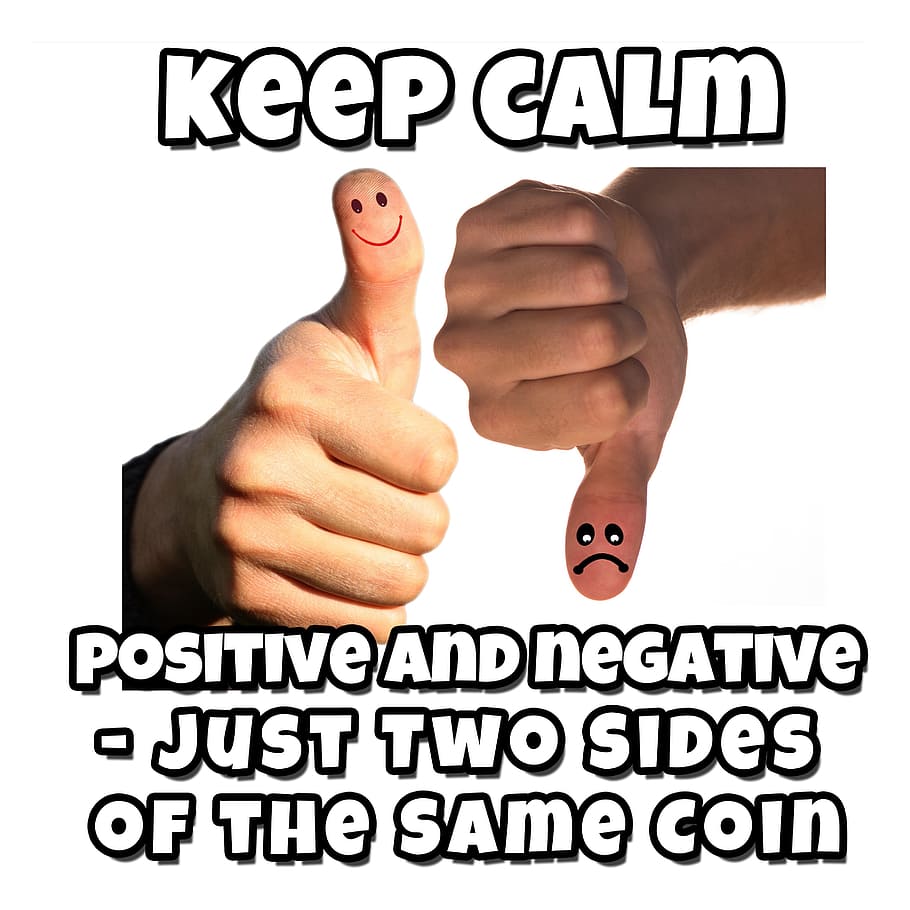To be truly productive we need to be positive. Optimism increases life expectancy, our focus and our energy at work, as well as our ability to work effectively with others. Read more here, here, here, here, here, here, and here.
Confession of a pessimist
I am not a very positive person. All of my childhood (till I was 19 years old) I was very miserable. As a toddler, I was very sick. I did not get a chance to play with other kids until I was 9 years old. Then I was bullied till I was 12 years old. Between 12 and 14 I actually was quite happy, but not for long. When I was 14 years old there was immigration and temporary poverty that came with it. When things started to work for me I was a very bitter 19 years old.
For people like me, no amount of success, love, and respect can fully outweigh a bad childhood. I am always expecting something bad to happen, and when bad things happen I feel strangely calm and focused. If something bad is about to happen, I am the guy you want to be with. However, life is usually good, and I do not leverage my good luck as an optimist would.
I am working with myself to be more positive and I also evaluate the things that I miss.
How to fake optimism
There are several simple rules I try to follow for optimism:
- For every bad thought generate 3 good thoughts
- In situations that require multiple perspectives, always think “what an optimist would do”.
- Have role models of real life optimists and be able to visualize their approach.
- Express gratitude. Deeply and honestly.
- Every time I have a profoundly positive experience, label it as such and memorize for future reference
- Practice positive self-talk
- Making some of the people close to me aware of the situation, with immediate feedback.
I cannot say these practices always work, yet I have 85% success rate.
Now, you may ask why I try to become something I am not.
Be motivated by the process
It is relatively easy to be motivated by positive results. We know that it is more effective to be motivated by the process itself. Now, if we do not believe that each and every action we do matters, we will not be truly invested. As a result, we will allocate less focus, energy and time, effectively reducing the chances of a successful outcome.
Winners are always positive. They keep trying as long as there is hope, and they never use hope. Think about the people winning reality shows. They invest all their energy because they believe they will win. Only 1 in 20 actually wins, but the 2nd place often capitalizes better than the winner. Those who do not even try because the odds are against them have zero chances of winning.
What motivates the winners is the excitement of the process and the ability to learn from it. If you are motivated by process, focus less on the goals and more on how the things are done,
If you are motivated by results, try to divide large projects into many small tasks and enjoy the completion of each task.
Have a positive stress
Productivity initially increases with stress, so-called positive stress or eustress. As the stress rises further, productivity starts to drop. Eventually, the negative stress causes various problems including burnout.
What often separates between positive and negative stress is the feeling of control, the firm belief that by a good performance we will get a positive outcome. Now, there is no guarantee. Simply positive beliefs reduce stress.
By the way, religious people are often less stressed as they believe that the righteous will be awarded. We can control our behavior, so the situation is always sort of “in control”.
Positive people live longer
Optimists have a better life expectancy. They might die more in dire circumstances, but we live in good times. So they are less likely to have stress-related cardiovascular disease or get depressed.
To be honest, the sense of purpose is often a stronger motivator than optimism. Moreover, asking for a second opinion and not expecting everything to end well may alter the mortality rate. Thus intelligence and discipline are often more important for longevity than optimism.
Try to measure your optimism and change the certainty of your beliefs using the following statements:
- In uncertain times, I usually expect the best.
- If something can go wrong for me, it will.
- I’m always optimistic about my future.
- I hardly ever expect things to go my way.
- I rarely count on good things happening to me.
- Overall, I expect more good things to happen to me than bad.
To increase the certainty of a belief, repeat the statement several times, each time with more confidence. You may also use visualization, like gradually changing the visualized color from red to green each time the statement is said. (This is a well-known NLP trick)
Pessimism as a game
In our childhood, we often use a negative approach as a game to get what we want:
- We complain to get notices
- The language “yes, but…” allows us to control dialogues no matter what
- Our self-fulfilling prophecies make us think very highly about our predictive abilities
- Lack of trust preserves us from trying things that are hard
- Sticking to certain thoughts makes us less likely to be convinced to do something we fear of
All these patterns and more become a part of our nature. If our parents do not help us stop our negative thoughts, we become pessimists. These patterns can be addictive and contagious. People around us will mimic our approach, and we will feel a sort of fulfillment from being successful in our own games.
As we grow, it is actually harder to stop the vicious cycle of negative thinking, but it is also more rewarding.
Practice gratitude
Each time we acknowledge positive things that happen in our lives, we are less inclined to negative thoughts. Some people have actual gratitude journals, where they right good things every day. There are less compulsive ways to feel gratitude:
- Each time we experience something good, notice it, label it as such
- Visualize the likely positive outcome of future events, and be grateful when they happen
- Mindfully observe how you feel when things are good, focusing on every detail
- Have a mental inventory of your assets and strengths, and be grateful for them
- Take positive actions and receive the gratitude of others
If a cup is half-full, the idea is acknowledging the half-empty part of the cup while focusing on the half-full part. Maybe even quite literally fill half-cup and enjoy the beverage.
Take ownership
Ownership has a lot to do with positivity. The feeling of control often increases the belief in a positive outcome – at least if we have some training. It is easy to feel pessimistic when incompetent people make bad decisions and we do nothing to change that. Once we get committed, we can contribute our knowledge and experience and change the outcome.
Acknowledging a challenge might be the first step of acing it. Acquiring the required knowledge is yet another step. We still need to be proactive and actually do something to be successful.
For example, I do not trust judgement of medical doctors, so I reason with them for a minute until I become convinced that they offer a valid solution. 90% of medical advice is valid and I felt more motivated to follow it. 10% of the time, I avoided possible damage.
Practice forgiveness
Just like we can practice gratitude when things work well, we can practice forgiveness when bad things happen. Forgive by increasing level of difficulty:
- People who wanted you good, but their efforts failed
- Bystanders who choose to do nothing
- Those who actively try to interfere
- Yourself
In the beginning, forgiving your own faults might be very difficult. With practice, it gets easier. The ability to forgive is improved by practicing empathy and compassion for others, for example, via a meditative practice or advisory work.
Actively focus on your strengths
The most direct and immediate way to become positive is to focus on our values and strengths. It requires a certain focus each time we need to address a challenge, so our job is easier if we do not need this step. A small tip: smile or clench fist for a physical affirmation when doing it.


Get 4 Free Sample Chapters of the Key To Study Book
Get access to advanced training, and a selection of free apps to train your reading speed and visual memory
